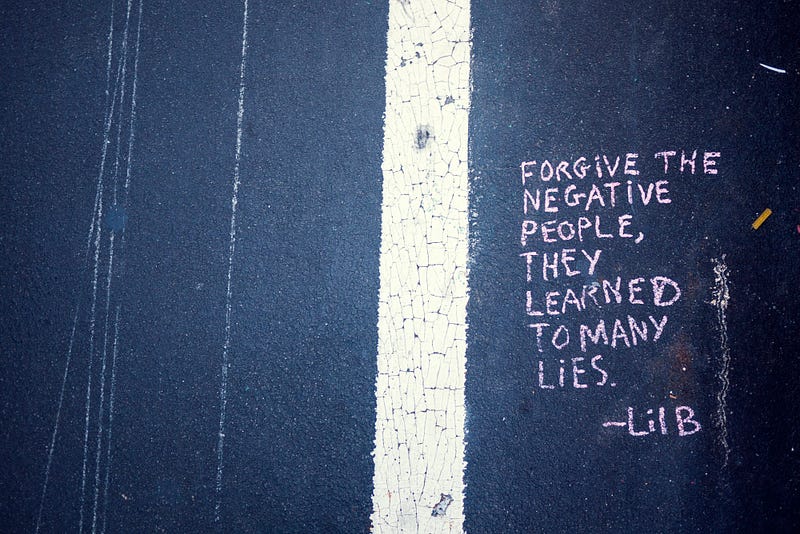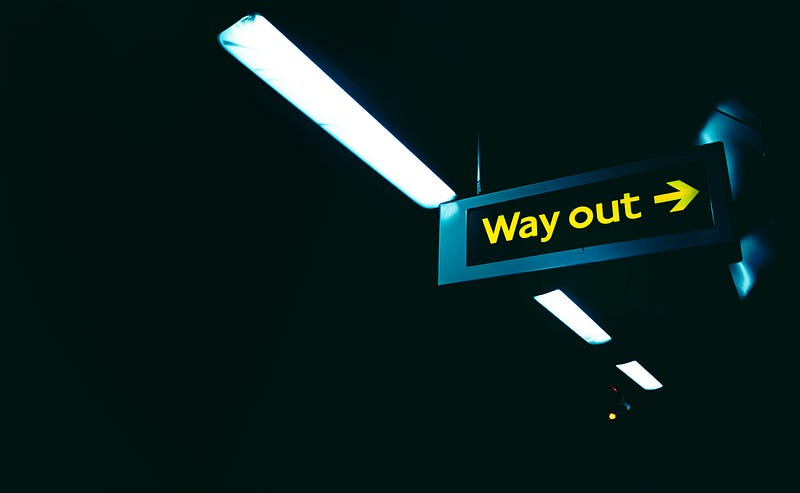Breaking the Cycle: Healing from Inherited Trauma Together
Written on
Chapter 1: Understanding Our Inherited Pain
Hey there, I completely understand your frustration with Mom and Dad. I've been in your shoes before. Just like you, I've felt the weight of their struggles passed down to me. It’s a shared experience, and I can empathize with how it impacts you. But here’s the thing: it doesn’t have to remain this way.
Growing up, we were taught that parental conflicts were a normal part of life. Arguments in a marriage were portrayed as inevitable, and to expect otherwise was seen as unrealistic. Every couple has their disagreements, and our parents were no exception, just like their parents before them.
Certainly, disagreements and arguments will happen. It’s a natural part of any close relationship. If you spend enough time with someone, occasional conflicts are to be expected. However, what we witnessed as children wasn’t always typical.
Our upbringing was shaped by a work-driven father who seemed more invested in his job than in family life, and a mother who felt she was dealt an unfair hand. Financial struggles meant Dad was always working, and that’s all he knew.
From a young age, he was groomed to be a farmer, not a father. When everything he built was suddenly taken from him, he was left scrambling to provide for us.
Mom, on the other hand, thought she was marrying a free spirit. Growing up under strict conservative values in the 60s, Dad was a refreshing change. But when circumstances forced him to leave home to support us, everything shifted.
What once felt liberating for her soon turned into a suffocating reality. Alone with two kids and no partner to share the load, she turned to alcohol. The combination of resentment and addiction can be explosive, especially for young adults who never learned how to manage their emotions.
And so, we found ourselves caught in the fallout.
This isn't about making excuses for our parents; I’m not trying to do that. For years, I carried the same anger that you feel right now. I masked mine with substances, but that only provided a temporary escape.
I had to discover healthier coping mechanisms.
Here's a moment to reflect on how our childhood experiences shape our emotional landscape.
Section 1.1: The Weight of Our Parents' Emotions
As children, we absorbed the emotional turmoil around us. We learned to resonate with our parents' feelings, internalizing their stress and pain as our own. If our caregivers lacked emotional regulation, we were likely to mimic those patterns, perpetuating cycles of trauma through generations.
I'm not dismissing your feelings; I share them too. Like you, I carried anger and resentment until I recognized that we aren’t entirely to blame for our issues. Our parents didn’t ask for these burdens either.
Subsection 1.1.1: Breaking the Cycle

Chapter 2: The Journey to Healing
The first video, I Know You're Mad, explores the frustrations we feel toward our parents and the impact of inherited trauma on our lives. It discusses how recognizing these feelings is the first step toward healing.
As human beings, we tend to cling to familiar patterns, even if they bring us pain. Growing up surrounded by conflict can make it feel like a normal part of life.
But here’s the positive news: you have the ability to change this narrative.
Recognizing that we aren’t solely responsible for our flaws can be liberating. The behaviors we've observed in our parents don’t have to define us; we have the power to choose differently. It becomes our responsibility to disrupt these cycles.
Whether we heal from our past depends on us. The journey begins with awareness. For a long time, I thought I had no choice. I believed I was destined to be broken.
I convinced myself that my impatience and tendency to take on others' emotions were inherent traits. I thought I’d always push people away to protect myself.
Then I realized: the onus was on me to change. Just like you, I have the power to transform what I don’t like about myself.

Chapter 3: Embracing the Healing Process
In the second video, 225: You Can't Write When You're Mad, we are reminded that healing isn’t straightforward. It’s often a winding path filled with ups and downs. One day you might feel great, and the next, it may seem like you’re back to square one.
Setbacks are inevitable. At times, it may feel like giving up is the only option, but perseverance is key. Remember, the struggles you face are part of the journey.
The pain we often try to avoid is exactly where we need to go for healing. Facing our hurt is essential to moving forward. It will be uncomfortable, but as time passes, even pain will fade.
Forgiveness plays a crucial role in this process. It’s easy to blame our parents for our challenges; it keeps us stuck in a loop of negativity.
While our parents might not have made the best choices, harboring resentment only perpetuates the cycle. To truly heal, we must learn to forgive.
Accepting that our parents did their best with the tools they had can free us from the weight of their past mistakes. It doesn’t excuse their actions, but it allows us to release our burdens.
Forgiveness brings patience and understanding, enabling us to extend grace to others and ourselves.
Conclusion: It's Your Journey to Own
I still feel discomfort in tense situations, but I no longer run from it. I've learned to confront the discomfort because it reveals the path to healing.
Our pain can guide us. It’s not solely your fault, and your parents aren’t entirely to blame either. We all operate based on learned behaviors.
Understanding that change is possible opens the door to healing. Only when you’re ready will you discover how to love yourself, and that’s the essence of true healing.